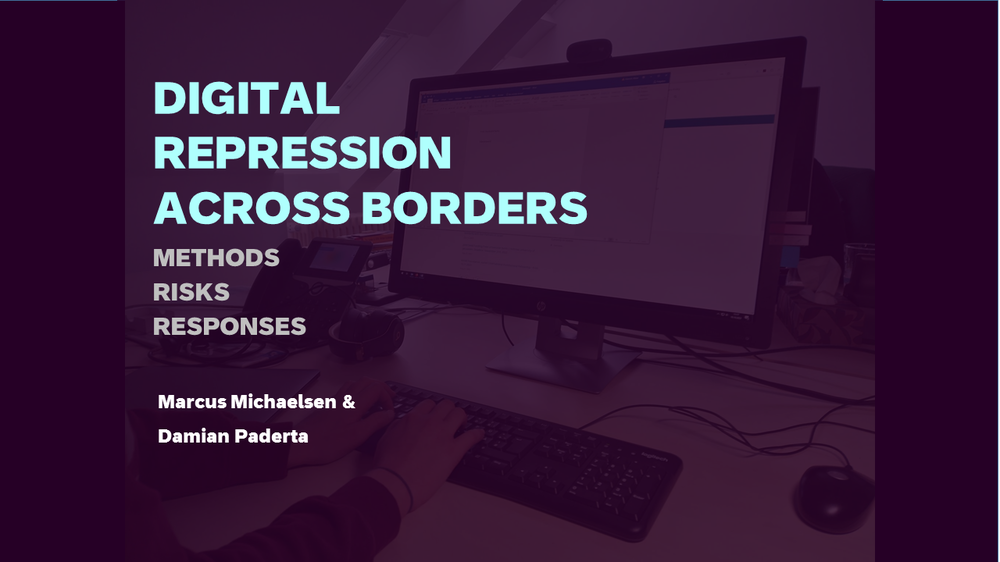AiS/BCGE Training: Digital Repression Across Borders: Methods, Risks and Responses
Online workshop 14.-15. September 2023, 9:00-15:00.
On 14.-15 September AiS invited its network to attend the AiS/BCGE-Training Digital Repression Across Borders: Methods, Risks and Responses.
The workshop was held by Dr. Marcus Michaelsen, a researcher studying digital technologies, human rights activists and authoritarian politics, and Damian Paderta, a digital consultant and web geographer working on the topics of Open Knowledge, Civic Technology and Smart City.
Within the workshop, the following topic was discussed:
Digital technologies have given authoritarian governments new tools to control, silence and punish dissidents in other countries. These governments use surveillance, malware attacks, online harassment, and defamation campaigns to threaten political exiles and diaspora communities. International scholars can also fall into the surveillance practices of authoritarian governments even though not being explicit political exiles. Digital threats are now a key method of cross-border repression – and they are often intertwined with other, more direct tactics such as pressure on home-country families, threats from embassy staff and even physical assaults. Digital transnational repression can spread uncertainty, stress and social isolation among exiles and academics abroad, and it clearly affects their personal security and basic human rights. The two-day workshop introduces prevalent methods of digital transnational repression and highlights some of the security risks that scholars originating from repressive contexts may be exposed to while working in Germany and other countries. The workshop aims to help participants assess potential threats to their personal safety and information security, and develop strategies to mitigate those risks. Through a series of exercises and group discussions, participants will gain a better understanding of what security means to them, brainstorm potential threats to their personal safety and information security, and map out their information ecosystem to identify vulnerabilities and develop strategies to protect their data.
The objective of the workshop was to:
- Build knowledge on digital threats, their connection to physical security and wellbeing
- Stimulate reflections on risk perception and risk mitigation in daily routines
- Find practical solutions for improving digital hygiene and information security


